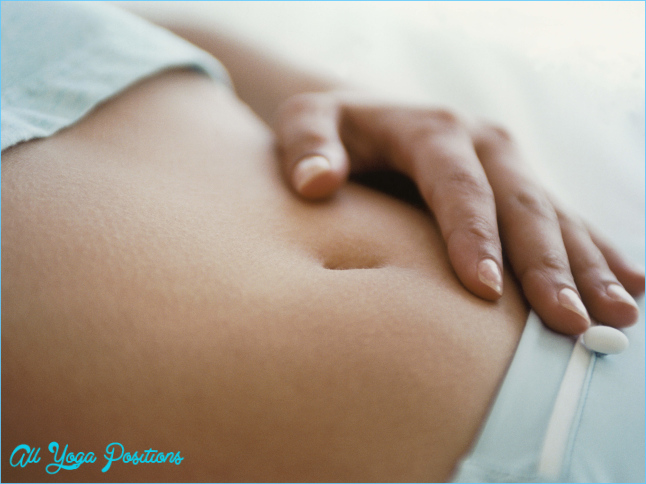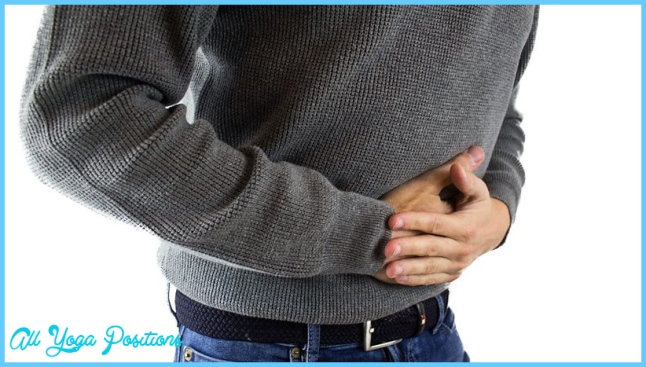PLAGUED BY MYSTERIOUS WEIGHT GAIN, unexplained aches and pains and the feeling that you’re getting old before your time? You’ll hear – maybe even from your doctors – that this is just a natural result of ageing. However, according to bestselling author Dr Frank Lipman in his latest book, 10 Reasons You Feel Old and Get Fat, it doesn’t have to be this way. Offering a different approach – that the issue isn’t really age, it’s just a loss of function – he provides 10 reasons why you could be feeling out of sorts. Read on to find out where you could be going wrong and discover the secrets to rewinding the clock…
Feeling Bloated And Older Than Your Years? Here Are 10 Ways To Change That Photo Gallery
YOU’RE NOT EATING THE RIGHT FOODS
Hands up if you think that a low-kilojoule, low-fat, sugar-free diet will help you lose weight and feel good? While this is often the strategy those who are conscious of piling on the kilos as they get older turn to, Dr Lipman insists that this approach is doing us no favours. In fact, growing research shows that sugar substitutes can be just as addictive as sugar itself and can cue the body to store fat, while kilojoule counting can be unhelpful, too. “The number of kilojoules you consume is far less important than the type of kilojoules,” Dr Lipman says. Fat is not the enemy – in fact, every cell in our body depends on the healthy kind. “Long-term, low-fat diets can have a dire impact on our health and, contrary to what we may expect, our weight,” adds nutritionist Cassandra Barns. The solution? “Eat real foods!” she says. “This means foods as close as possible to how they are found in nature: primarily vegetables, fruits, fish, eggs, whole cuts of meat, nuts and seeds.”
YOU’RE OVERDOING THE CARBS
Ever heard of carbohydrate intolerance? According to Dr Lipman, it could be the reason you feel old and er, fuller around the waist. “Carbs are not evil; we do benefit from having slow-releasing carbohydrates in our diet. However, many people eat too many of them,” explains Barns. And while we all know to steer clear of the white, starchy kind, it might be surprising to learn that “healthy” carbs such as wholegrains, pulses, fruit and veg can often be culprits, too. “What very few people realise is that even complex carbs can be extremely challenging for many people, who need to avoid or limit them almost as much as they limit sugar or starch,” says Dr Lipman.
YOUR MICROBIOME IS OUT OF WHACK
The microbiome is the community of bacteria that lives in your gut and there are thought to be more than 100 trillion of them (that’s more than the number of cells in the human body!). The microbiome is best known for supporting digestion, but can also influence the brain and nervous system. “The state of your microbiome is probably the single most important factor in determining whether you are feeling old, fat, unfocused and sad, or young, slim, sharp and optimistic,” says Dr Lipman. A whole host of things can upset this delicate bacterial balance, from antibiotics to reactive foods. To preserve yours, take a daily probiotic and eat fermented foods three to four times a week. “One of the most effective ways to heal your gut is with bone broth,” adds Dr Lipman. The presence of gelatin and collagen can soothe the intestinal tract and may help heal a leaky gut.
YOUR HORMONES ARE OUT OF BALANCE
“Hormone imbalances can be a big factor in both feeling old and gaining weight,” explains Barns. The hormones produced in the thyroid, for example, serve a primary role in our metabolism, so poor thyroid function can lead to weight gain and a serious lack of energy. Another important hormone is cortisol, a stress hormone that keeps us motivated and focused when faced with any type of challenge. However, “Consistently high levels of cortisol are associated with weight gain, especially around the waist,” explains Barns. Too many sweets and starches, an imbalanced microbiome, reactive foods such as gluten and not getting enough sleep can all affect our hormonal balance.
YOU DON’T MOVE ENOUGH
“Our bodies crave movement and if we don’t give it to them, that’s when the ageing process really begins,” says Dr Lipman. While you already know that a lack of movement can contribute to weight gain, osteoporosis, heart disease and diabetes, did you know that physical exercise is one of the best ways to keep your mind sharp? “If you’re concerned about forgetfulness, or brain fog, your first line of defence is to get moving,” advises Dr Lipman. This is because your brain needs more oxygen and blood flow when you’re moving than when you’re sedentary. Getting moving doesn’t have to mean hitting the gym hard five times a week. Begin briskly walking or jogging for five to 10 minutes, three times a week, and slowly work your way up.
YOU’RE STRESSED
We can’t always help what’s stressing us out, but the repercussions of those anxious feelings go further than you might realise. “Chronic stress can affect the microbiome, which in turn may contribute to inflammation, joint aches and pains, [affect] neurotransmitters – such as serotonin – that affect the way we feel, and even [contribute to] our propensity to gain weight,” says Barns. If stress is a problem for you, work on self-care. Aim to give yourself two hours each week of ‘me-time’, and try developing a calming meditation practice.
YOU’RE NOT GETTING ENOUGH QUALITY SLEEP
A good night’s sleep shouldn’t be a luxury reserved for a lazy weekend. Sleeping repairs muscles, relieves pain and boosts memory, not to mention produces human growth hormone (HGH), a natural fountain of youth. What’s more, “It’s been found that poor sleep – even for just one night – may affect our levels of the chemicals leptin and ghrelin, which influence our appetite and eating behaviour,” says Barns. “Lack of sleep is one of the most significant health problems that we face today,” adds Dr Lipman.
YOU’VE GOT YOUR DOC ON SPEED DIAL
We live in a world where, if we’re sick, we look for a quick fix – even if the problem could be remedied through good diet and exercise. “Instead of seeing medications as temporary, limited solutions or a last resort, we’ll turn to them first,” says Dr Lipman. “Some common prescription medications create symptoms that we incorrectly link to inevitable ageing, rather than with a very reversible loss of function.” That doesn’t mean you should ditch your prescriptions, but it might be worth discussing alternatives with your GP if side effects are getting you down.
YOU’RE NOT GETTING ENOUGH NUTRIENTS
This might come as a surprise for those who eat a clean, organic diet full of veggies, protein and good fats: Dr Lipman reckons that very few of us can expect optimal nourishment without supplements. “If you don’t want your function to decrease as you age, supporting optimal functioning with nutrients is key,” he says. Dr Lipman recommends starting with the “basic four”: a multivitamin that includes methylated B12 and folic acid, vitamin D, fish oils and a probiotic. Check in with your doctor or health professional to see if a supplement could help you get your zest back.
YOU COULD DO WITH MORE “UBUNTU”
Dr Lipman believes three pillars complete the route to your best self: passion, meaning and community. These are collectively known as “ubuntu”, a Xhosa word that means, “What makes us human is the humanity we show each other”. As we get older, our priorities and needs shift, which can often leave us feeling lacking in purpose and belonging if we don’t adjust our perspective to suit. Take the time to tune in and reconnect to your values.
















